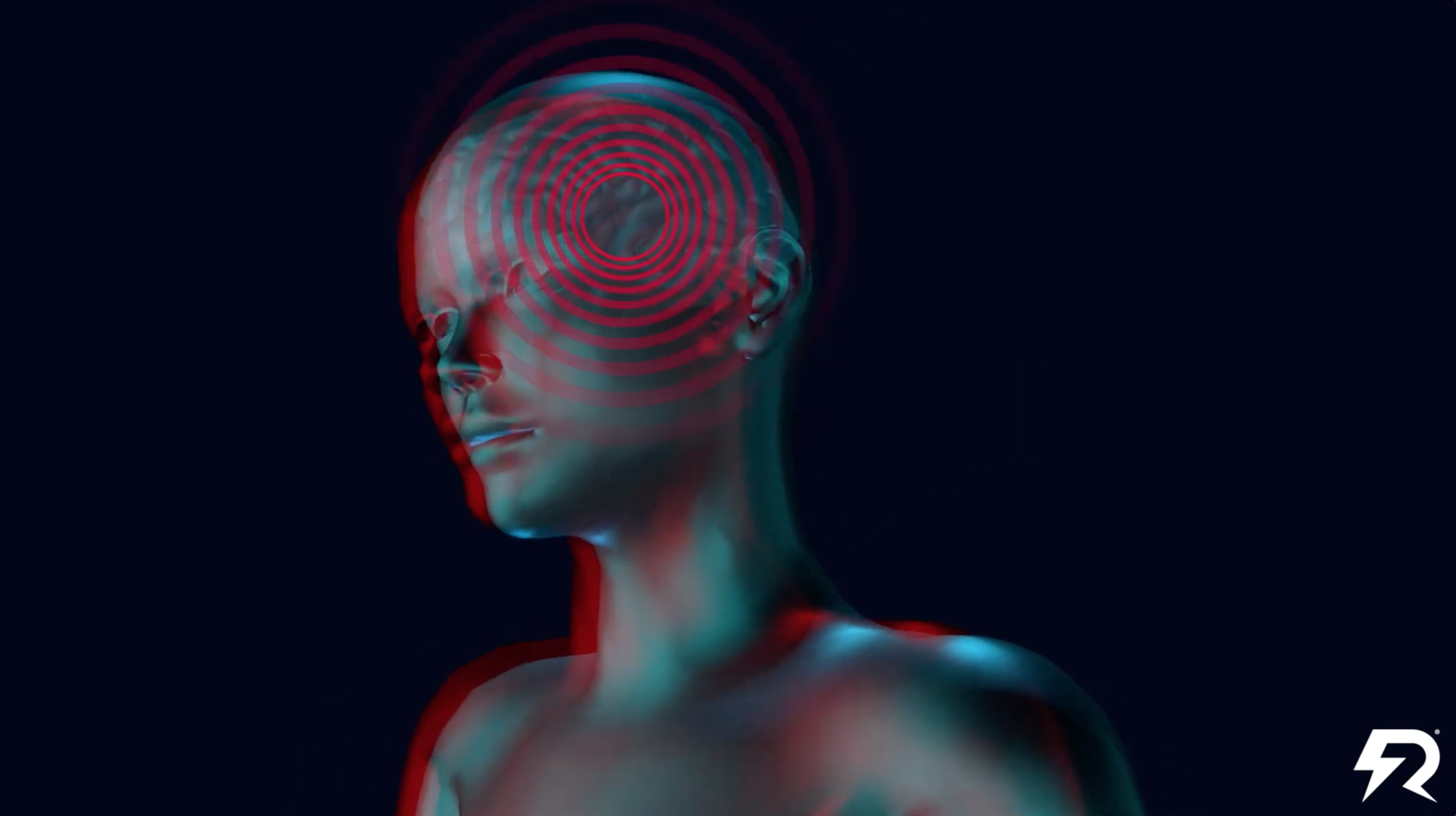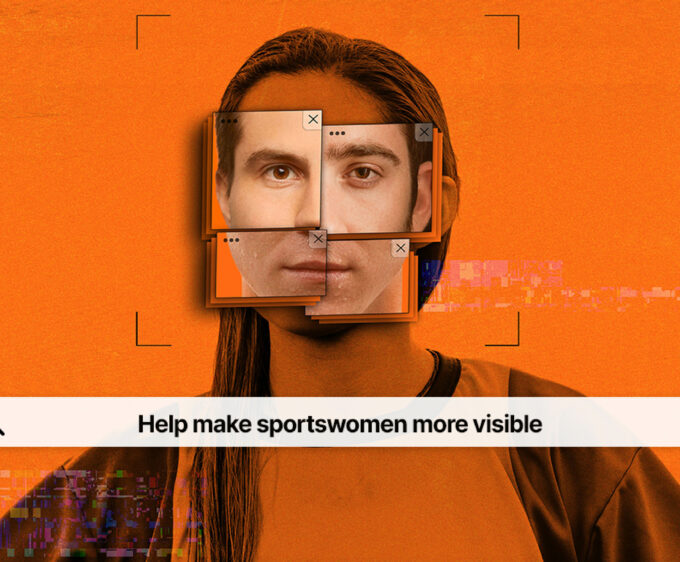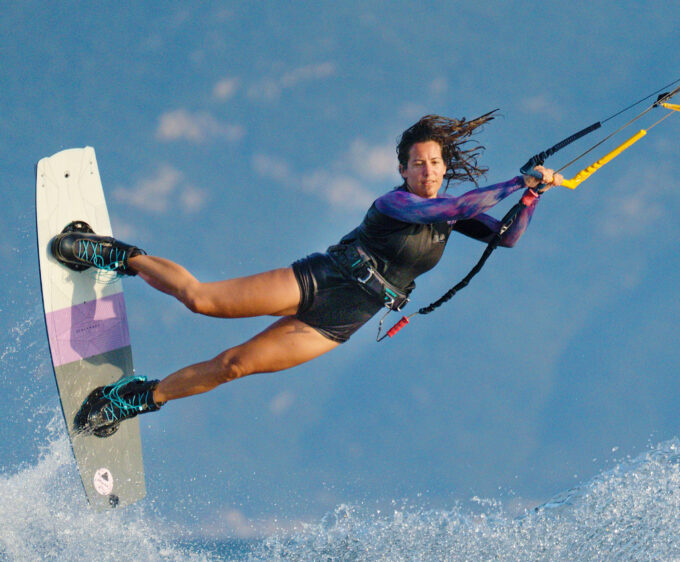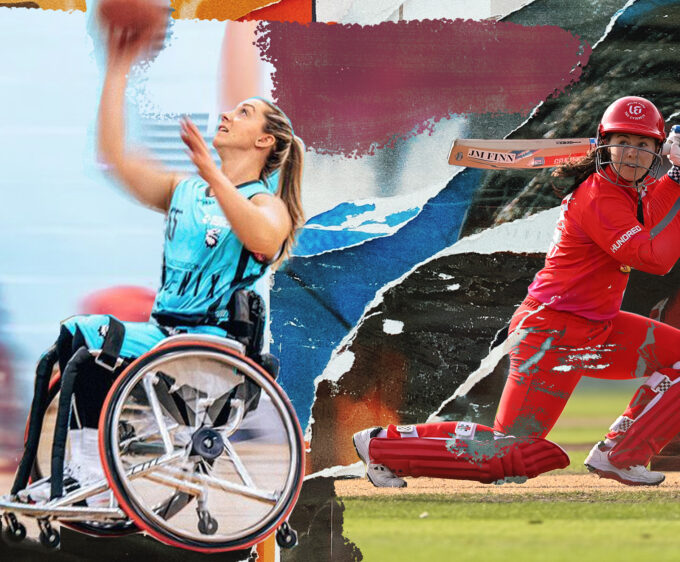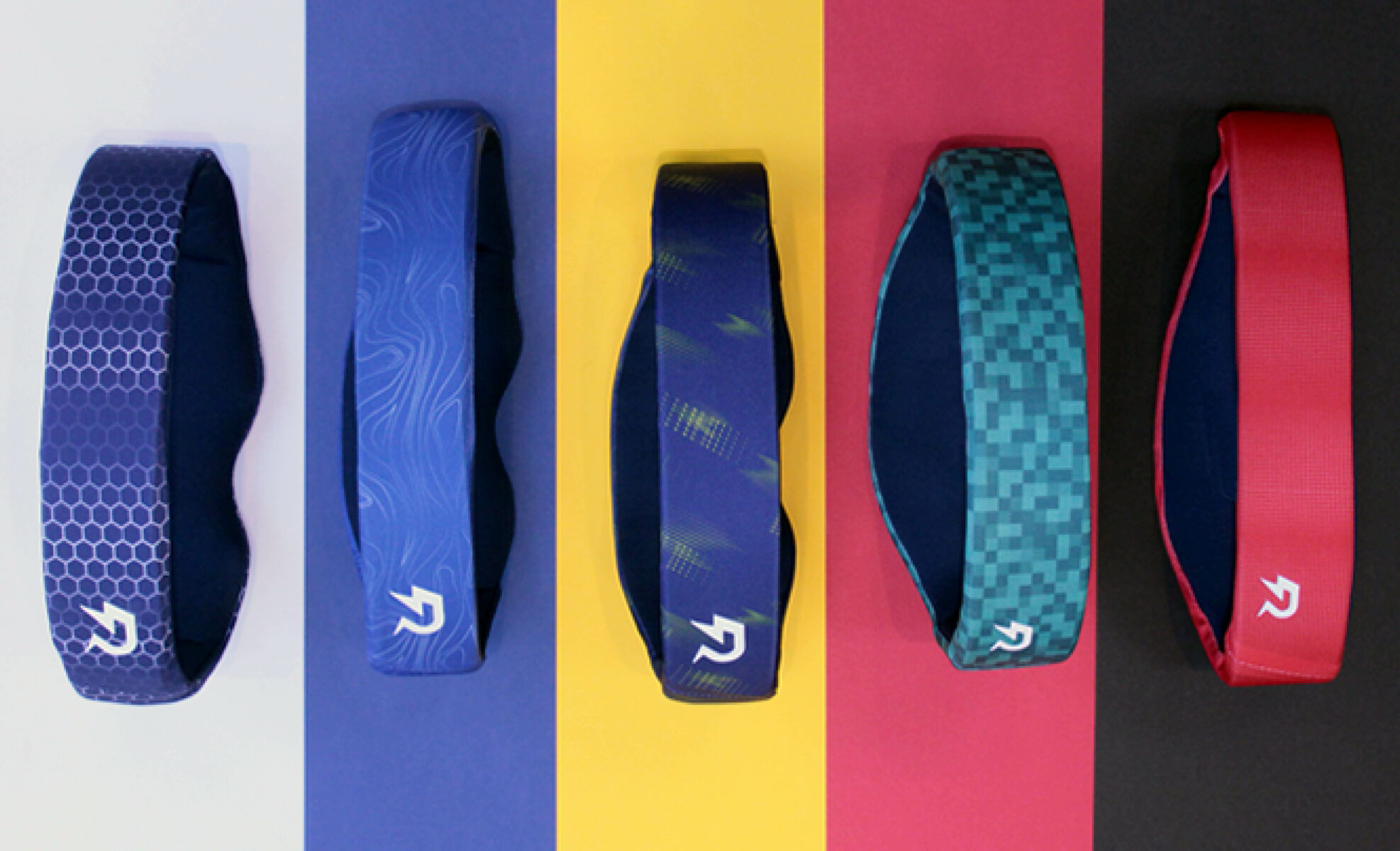
Tech: The Entrepreneur
“You protect your teeth and your shins… why not your brain?!” We meet Judith McMinn to discuss how her groundbreaking invention is changing the game by reducing the risk of concussion and sub-concussions
By Glorious
We often take measures to protect our bodies, but what about the most important organ of all – our brain? When we think of protecting our brain, we might immediately think of wearing a helmet while riding a bike or playing contact sports. And while these are certainly important measures to take, there is much more that can be done to protect our brains. That’s where Judith McMinn and her invention, Rezon Halos, come in. We meet the entrepreneur to discuss patented technology, brain health and biomechanics, as well as the realities of running a medical tech business.
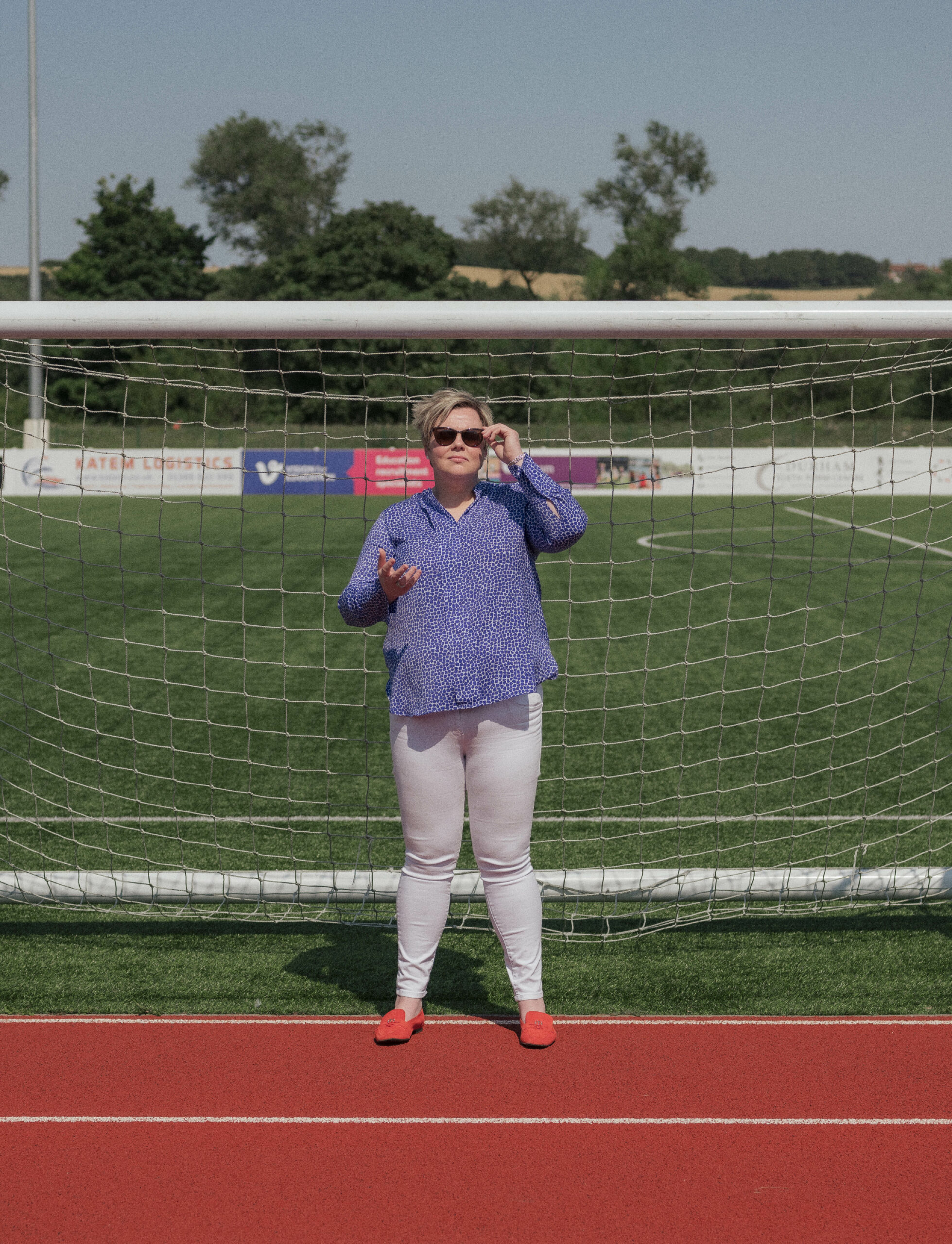
Glorious: Thanks so much for agreeing to talk to us! What is Rezon Halos?
Judith McMinn: In sports, performance is often perceived as being physical, with a focus on being faster, fitter, stronger, and leaner. However, the reality is that performance in sports, as well as in life, comes from the brain. We protect our shins and teeth, but not our brains when playing sports. I’ve spent 30 years asking people why we do that, but no one has been able to provide an answer. It makes no sense to risk our most valuable asset, our brain, which controls our mood, thinking, and processing. So, the first thing we set out to do at Rezon was to protect performance. We aim to reduce the risk of concussion and sub-concussions by bringing together a protective product for every player. Sub-concussions are smaller impacts caused by a quarter of the force, asymptomatic, and 500 times more frequent than concussions, yet they are not as well-known. The brain injury and neurodegenerative disease that we see in former sports players often come from sub-concussions. Rezon Halos is a protective headband worn (obviously!) around the head. It’s the world’s only product that’s PPE certified and legal to sell and buy in the UK. It’s the most inclusive product in sport, with no distinction made on gender, skill level, geography, or game, whether it’s netball, rugby, or football.
Glorious: I watched the TED talk with Dr Emer MacSweeney, a brain expert and leading London neuroradiologist and it was really eye-opening! I have been involved in sports for a long time, but I had no idea that the biggest risk to brain health is actually a series of small impacts that build up over time.
Judith McMinn: Yes, concussion isn’t actually that common, with a risk of 1 in 10 or 1 in 3 depending on the sport. It’s the sub-concussions that are the real problem, with a frequency that’s 500 times higher. It’s frustrating that people are still focused on concussions, when sub-concussions are almost inevitable. Additionally, there’s a serious lack of education around the brain in sports. While we’re encouraged to learn about our bodies in so many other ways, the brain is often ignored until it’s too late. People only start talking about it when someone is already injured or has a neurodegenerative disease.
There are a few things people don’t realise about concussions. For one, even after the observable symptoms disappear, the person is still at risk for a year. This is especially relevant to women, who are six times more likely than men to have an ACL. If a woman has had a concussion, her risk of ACL or lower body injuries is 67% higher for a year afterwards. This is something that should be discussed more in the context of female sports injuries, but isn’t. Concussion is serious, but it’s the sub-concussions that are the real silent killers, as Dr. Emer rightly points out in her talk.
Glorious: I saw that you won Product Innovation of the Year 2023. Congratulations! How did you come up with the idea for Rezon Halos?
Judith McMinn: My idea for this product started with a basic question – why do we protect our shins? As I stood on the side of a pitch in Dungannon, Northern Ireland and observed how athletes were using their heads, I became more conscious of the issue of brain injury. I began to question whether helmets and scrum caps were truly protecting athletes’ brains. I discovered that while helmets were designed to protect the skull, they did not prevent or protect against brain injury. Additionally, many people believe that scrum caps offer protection, but they were not designed for that purpose. I wanted to create a product that would actually protect athletes’ brains, and so I brought together experts in brain health, biomechanics, manufacturing, and medical tech to develop a solution.
I am not an inventor and I don’t even think I’m an entrepreneur! I guess everything starts with a question. Standing at the side of a pitch, the number of ways people were using their heads, I realised if I wanted to play I wanted to protect my brain! So, what were my choices? A helmet? Well, a helmet protects your skull, not your brain. Whilst it’s fit for purpose when you’re on a horse or on your bike, it doesn’t stop brain injury. And the second thing on offer was a scrumcap/headguard, which provides no protection to the skull or to the brain, it’s about as effective as a hairnet! It’s worrying because 60% of people across players, parents and coaches level believe that a scrum cap is protective. So people are buying something in the belief that it is protective when it’s not.
So that’s where it started – brain protection. I then began to bring together the leading experts in brain health. I work with Dr Emer MacSweeney, a brain expert and leading London neuroradiologist who came on to advise, as she’s at the forefront of innovation in brain scanning technology. Then I brought on biomechanics experts. It’s crucial as what we’re manufacturing isn’t just protective wear, it’s also medical tech. We’re putting technology into the band to take it beyond just protection, we’re looking at detection, so it will tell you where you’ve got an elevated risk of CTE. And then there’s performance. So I believe in about 18 months, I will be able to tell Rory McIlroy why he has never won the Masters!
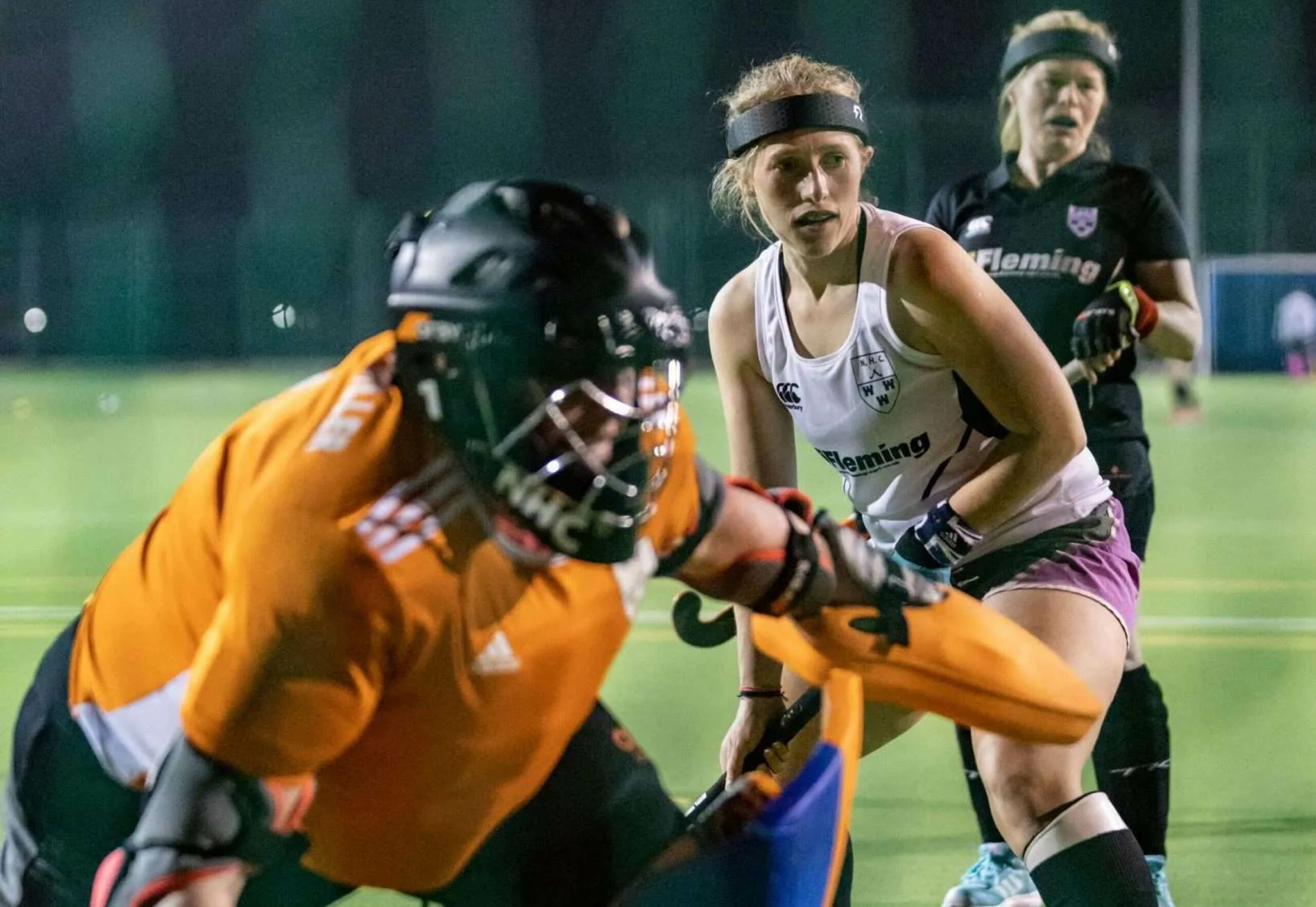
Glorious: That’s fascinating, tell me more…
Judith McMinn: We are putting technology into the band that will take it beyond just protection to detection, to tell you where you have an elevated risk of CTE. We are working with a firm in the US called Cogwear and have exclusivity of their technology in sport. Our detection product firstly, shows us how much rotational force has been breached and what the elevated risk to the brain is from CTE. It essentially allows every player to do a baseline reading of their brain. This means our detection product allows people to manage a much better return to play. The return to play is a bit silly because you can return to play within about 23 days or less if you’re an elite player, but for a year afterwards, you’re still at risk.
In addition to protection and detection, our product will have EEG technology in the band to tell you how athletes who are wearing the band are behaving in their brain, such as if they are fatigued, distracted, or engaged. This will be clinical grade data that we can read off to identify the next Kevin De Bruyne at seven perform! The performance element is utterly game changing. We had an athlete run with it last week. He was running a 10-mile race at a six minute mile pace. He was running at a great pace, but wearing the band we could see the points where he was momentarily distracted!
Glorious: That’s extraordinary! So, what’s been the uptake in terms of teams, leagues, and players using Rezon Halos?
Judith McMinn: Well, to be honest, it hasn’t been enough. Everyone needs brain protection, but people don’t know much about the brain, so they don’t think about it. Unlike getting a new pair of trainers or weightlifting gloves, people don’t wake up thinking they need a new brain protector product because they don’t know it exists or that they need it. There’s also confusion between the brain and the head, with people thinking they’re the same, but they’re not. The head is repairable, but the brain is not. Women are at greater risk of concussion, but they don’t want to know, and there are sex differences in how concussions affect men and women. Women’s brain cells are longer and thinner, making them more susceptible to injury with less impact. However, everything we know about concussion is based on studies of men, with 80% of information and data on concussions being based on studies of men.
innovation
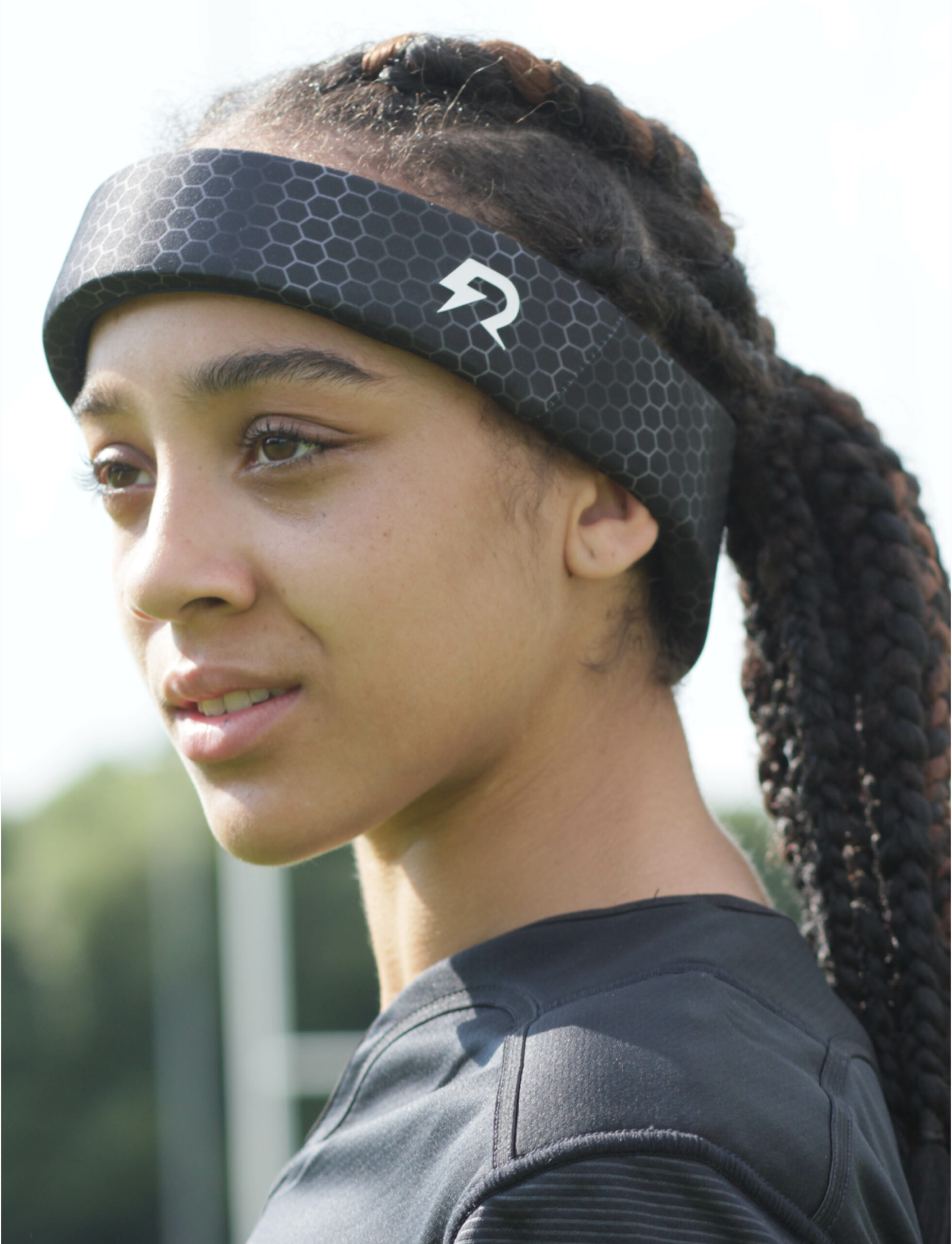
Glorious: I never knew that women could be more susceptible.This is really important given the rise in the number of women playing contact sports.
Judith McMinn: Yes, it’s not commonly known. Women’s sports have often taken their lead from men’s sports, but the truth is that women can be more susceptible to brain injuries. The rise of women’s sports is a wonderful thing, but it also means that we need to address this issue for female athletes as well. It’s unfortunate that it may take a serious injury for many women to realise the importance of brain protection. I’ve spoken to international players who won’t use brain protection until others start doing it. It’s like saying you won’t wear braces to straighten your teeth because others aren’t doing it! We need to change that mindset. We shouldn’t accept not protecting our brains either. The TED Talk on the topic has over a million views, but there’s still more work to be done. It’s shocking how many people walk away from learning about this issue and don’t take action.

Glorious: It was fascinating to hear about the study in your TED talk which showed that children under 12 who suffer from CTE are more likely to have learning problems as they grow up. Surely that scientific data alone should be enough to make people listen up? Shouldn’t we introduce Rezon Halos at school level and make them a normal part of a child’s kit, like a mouthguard?
Judith McMinn: If you think about dental hygiene, you don’t start to clean your teeth at 32! It’s instilled in you as a child. Similarly, wearing sunscreen is something that is taught to children. Children under 12 who suffer from head impacts grow up to be cognitively disadvantaged. Even if they don’t develop a neurodegenerative disease, they still have a lower IQ, under-achieving by 30 to 40% in numeracy and reading, which is quite sobering. So, it’s important to educate parents and children on protecting their brains before they reach an age where they can make their own choices. People in sports might argue that a hit from a 16 stone man to another 16 stone man isn’t that harmful. However, it’s all relative. Children have less myelinated brains and less protective myelin, so even a lesser hit can be more damaging than it would be to an adult. Unfortunately, people don’t understand the brain as well as they understand other parts of the body.
Glorious: You’re working in both the tech and sports worlds, which are obviously male-dominated spaces. How do you find that? Is it difficult or exciting for you?
Judith McMinn: There are a lot of people who tend to make assumptions and ask questions about things they know nothing about. For example, a man recently asked me why I would make a product in Britain instead of somewhere else if it was a good product. But what he didn’t realise is that I have brain experts working alongside me, and we base our decisions on scientific facts and figures. Most people don’t know the science behind what we’re doing, so I have to work even harder to explain it. I have to start from the very beginning with people who have either no knowledge or are completely dismissive. I’ve had coaches and schools tell me that headgear doesn’t work, but that’s only true for conventional headgear. We developed something different to address that issue. I’m constantly being dismissed by people, and it can be challenging to make them see the value in what we’re doing.
Glorious: That’s really concerning. Do you think emphasising the performance technology of the product will be the key to convincing people to wear it? It seems absurd to prioritise how fast you run or how engaged you are in a game over protecting your brain.
Judith McMinn: Absolutely! Protecting your performance means protecting your brain. If you ask any athlete at any level if they want to safeguard their performance, they might perceive it as improving their kicking or hand-eye coordination, depending on the sport. However, I would struggle to find anyone who says they’re willing to let their performance suffer. When we explain that we’re talking about protecting the brain, it often leads to a better understanding. We need to build awareness around the brain and what we’ve developed, and then help people understand how it can benefit them. Once people start seeing others wear it, they’re more likely to adopt it themselves. This is especially true in team sports. People tend to follow the lead of others, and we live in a world where influencers have a big impact on what we do and buy, whether we realise it or not.
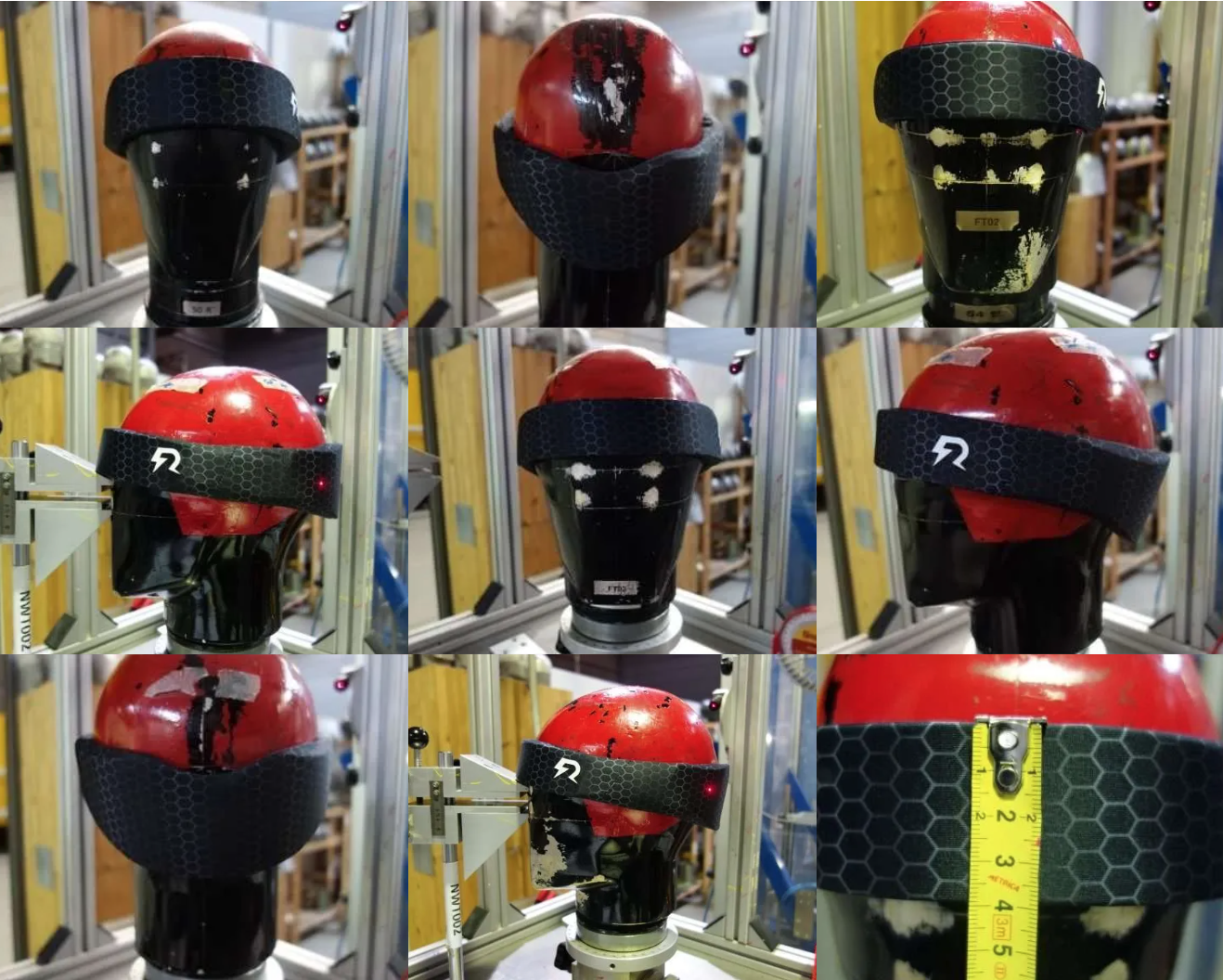
Glorious: What advice would you give someone who has an idea for a product? How do you begin that process? And how do you remain motivated?
Judith McMinn: The first thing is to research it! The more research you have, and the more knowledge you have, the more confident you can be that the product or the service, or whatever you’re developing is right. And the more knowledge you have, the better you can tackle objections and refute or take away challenges, because everybody sets out to destroy you! The second thing is that you’ve got to think about how to bring this idea to life. You can’t patent an idea; ideas are ten a penny. We live in a time when it’s easy to get and steal ideas because you can Google them. So, you’ve got to have something that is real, something that people can touch and feel and form their own view on. Knowledge and getting something into reality are key. You’ve also got to be patient and persevere. I mean, I couldn’t tell you the number of times I thought about aborting this!
About 6 months ago, I was contacted by a grandmother of a girl who has up to seven epileptic seizures a day. She’s 15. Her complete education has been ruined because the school can’t cope with it. The girl is embarrassed. She has these very short seizures that cause her to fall and her head’s all scraped up. The grandmother said, “I’d like to buy one of these to see if it has an impact on her.” Shortly afterwards the girl’s mother got in touch with me to say that Halos had changed the day-to-day life of the child. She wears the headband, and whilst she still has seizures, she doesn’t have a scraped head anymore. People said, “Oh, I love your headband,” thinking it’s a hairband. The kid has a bit of confidence now, and it’s stories like that, and it’s the ability to educate people around the brain and to give them something that does protect it which motivates me! Also the fact that we have this legal status as being the only legal protective globally of our time, you’ve got to take some confidence, but you’ve got to be patient, and I’m really impatient!
Find out more about Rezon Halo here.
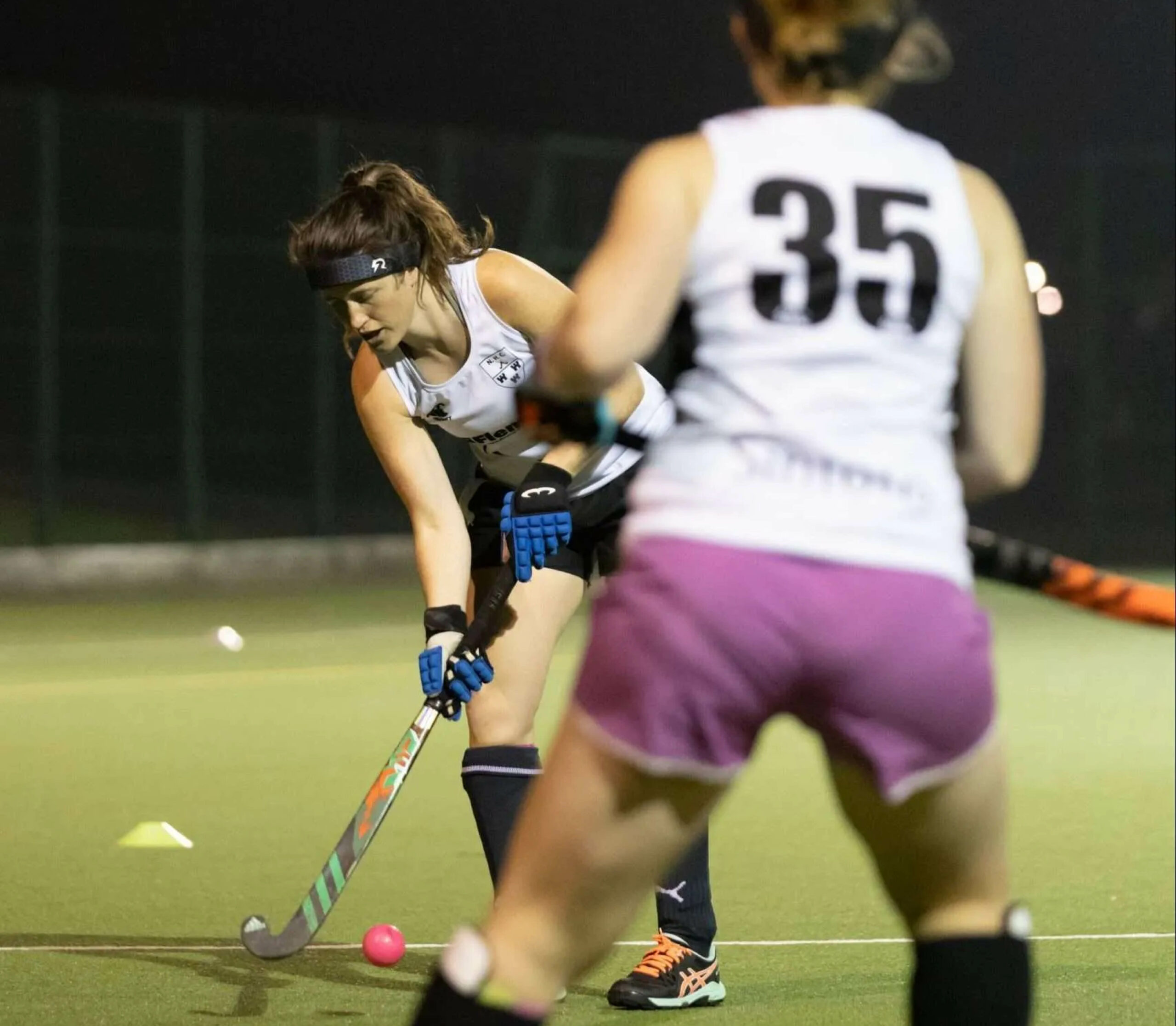
Find out more: www.rezonwear.com
Editorial design by this is root

